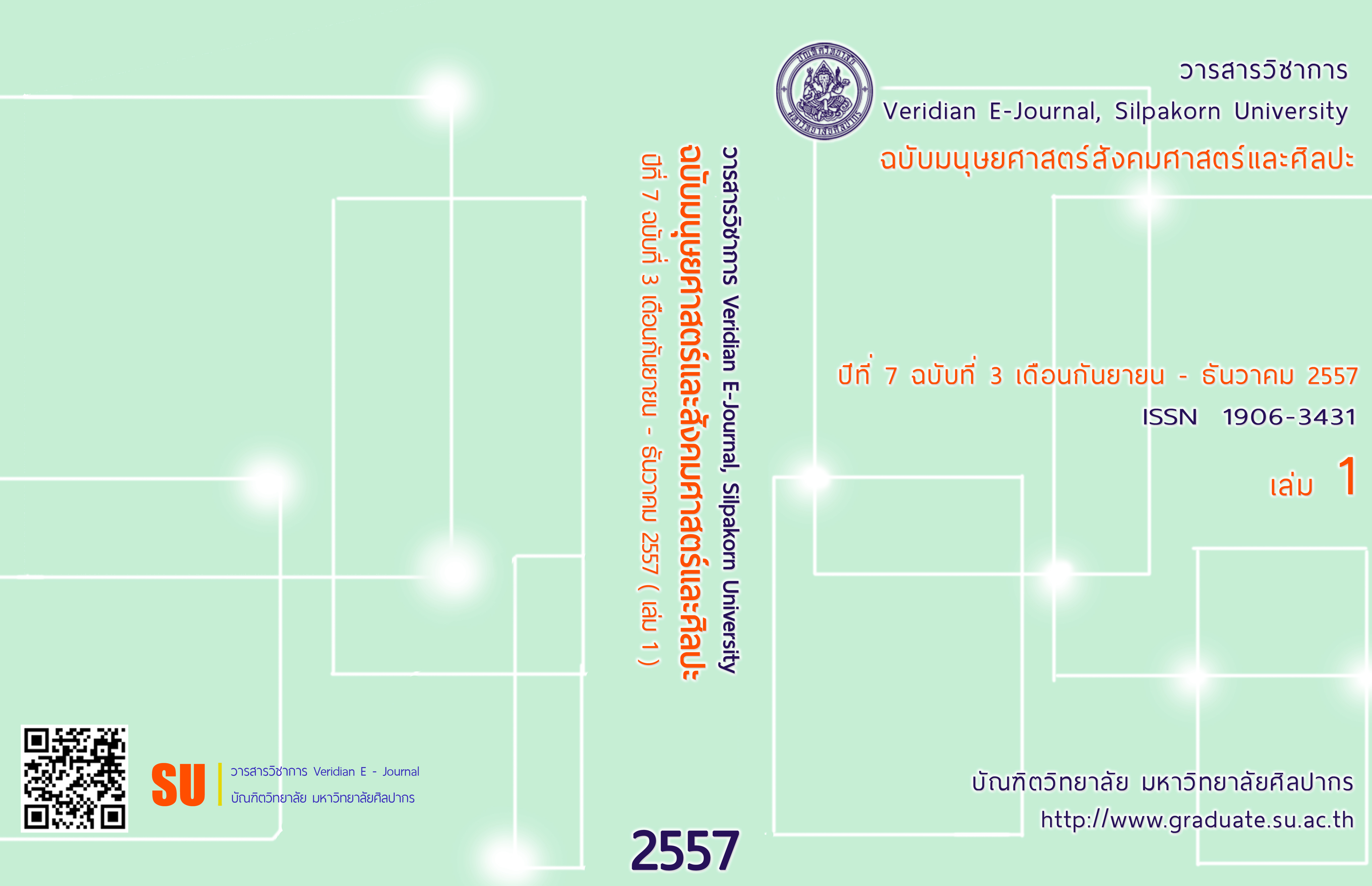รูปแบบการพัฒนาครูด้านการจัดการเรียนรู้ที่เสริมสร้างการรู้คิด และความสุขในการเรียนรู้ของผู้เรียนระดับประถมศึกษา
Main Article Content
Abstract
บทคัดย่อ
การวิจัยครั้งนี้มีวัตถุประสงค์เพื่อพัฒนารูปแบบการพัฒนาครูด้านการจัดการเรียนที่เสริมสร้างการรู้คิดและความสุขในการเรียนรู้ของผู้เรียนระดับประถมศึกษา ดำเนินการ 4 ระยะ ดังนี้ระยะที่ 1 การศึกษาข้อมูลพื้นฐาน ระยะที่ 2 การยกร่างรูปแบบ การตรวจสอบคุณภาพเบื้องต้น และทดลองนำร่อง ระยะที่ 3 การทดลองใช้รูปแบบกับกลุ่มตัวอย่าง และระยะที่ 4 การประเมินประสิทธิผลของรูปแบบ กลุ่มตัวอย่างเป็นครู จำนวน 31 คน และผู้เรียน 46 คน ในโรงเรียนระดับประถมศึกษาสังกัดสำนักงานคณะกรรมการศึกษาขั้นพื้นฐานในจังหวัดสุพรรณบุรี ซึ่งได้มาโดยการเลือกแบบอาสาสมัครเครื่องมือที่ใช้เก็บรวบรวมข้อมูล ประกอบด้วย 1) แบบทดสอบความรู้ความเข้าใจด้านการจัดการเรียนรู้ที่เสริมสร้างการรู้คิดและความสุขในการเรียนรู้ 2) แบบประเมินการจัดการเรียนรู้ที่เสริมสร้างการรู้คิดและความสุขในการเรียนรู้ 3) แบบรายงานตนเองเกี่ยวกับการจัดการเรียนรู้ที่เสริมสร้างการรู้คิดและความสุขในการเรียนรู้ 4) แบบทดสอบการรู้คิด 5) แบบวัดความสุขในการเรียนรู้
ผลการวิจัยพบว่า รูปแบบการพัฒนาครูด้านการจัดการเรียนรู้ที่เสริมสร้างการรู้คิด และความสุขในการเรียนรู้ของผู้เรียนระดับประถมศึกษา ประกอบด้วย 1) หลักการ 2) วัตถุประสงค์ 3) ขั้นตอนและกิจกรรม มี 5 ขั้นตอน ได้แก่ ก) กระตุ้นความรัก ข) ตระหนักในความรู้ ค) นำสู่การปฏิบัติ ง) จัดให้แลกเปลี่ยน และ จ) เรียนรู้และพัฒนา 4) สื่อ 5) การประเมินผล 6) ปัจจัยสนับสนุน และ 7) เงื่อนไขความสำเร็จ ผลการตรวจสอบประสิทธิผลของรูปแบบ พบว่า รูปแบบการพัฒนาครูด้านการจัดการเรียนรู้ที่เสริมสร้างการรู้คิดและความสุขในการเรียนรู้ของผู้เรียนระดับประถมศึกษา มีประสิทธิผลตามเกณฑ์ที่กำหนด ดังนี้
1. ค่าเฉลี่ยของคะแนนความรู้ความเข้าใจเกี่ยวกับการจัดการเรียนรู้ที่เสริมสร้าง การรู้คิดและความสุขในการเรียนรู้ของครู หลังการใช้รูปแบบสูงกว่าก่อนการใช้รูปแบบ อย่างมีนัยสำคัญ ทางสถิติที่ระดับ .01
2. ค่าเฉลี่ยของคะแนนการจัดการเรียนรู้ที่เสริมสร้างการรู้คิดและความสุข ในการเรียนรู้ของครู หลังการใช้รูปแบบสูงกว่าก่อนการใช้รูปแบบ อย่างมีนัยสำคัญทางสถิติที่ระดับ .01
3. ค่าเฉลี่ยของคะแนนการรู้คิดของผู้เรียน หลังการใช้รูปแบบ สูงกว่าก่อนการใช้รูปแบบ อย่างมีนัยสำคัญทางสถิติที่ระดับ .01
4. ค่าเฉลี่ยของคะแนนความสุขในการเรียนรู้ของผู้เรียนหลังการใช้รูปแบบอยู่ในระดับมาก
Abstract
This research aims to develop a model of teacher development for learning management to enhancing the cognition and the happiness in learning of elementary school students. The research processes consist of four phases. The first phase is analysis of based line information, drafting model and preliminary quality checking. The second phase is pilot study. The third phase is implementation the model with samples. And the fourth phase is evaluation effectiveness of the model. The samples consisted of 31 teachers and 46 learners in primary schools under the Office of Basic Education in Suphanburi province were selected by volunteering. Instruments for data collection consist of 1) a knowledge and comprehension test about learning management to enhancing the cognition and the happiness in learning, 2) assessment form of learning management to enhancing the cognition and the happiness in learning, 3) self – report of learning management to enhancing the cognition and the happiness in learning, 4) cognitive test and 5) measurement form of happiness in learning.
The results show that the model of teacher development for learning management to enhancing the cognition and the happiness in learning of elementary school students include: 1) principles 2) purposes 3) procedure and activities consist of five stages: a) stimulate love b) awareness in knowledge c) apply into practice d) experience sharing and e) learning and development 4) media 5) evaluation 6) supporting factors and 7) conditions for success.. Finally, the model for teacher development for learning management to enhancing the cognition and the happiness in learning of elementary school students has effectiveness given below criteria:
1. The average score of knowledge and comprehension about learning management to enhancing the cognition and the happiness in learning of teachers after implementation the model is higher than before statistically significant at the .01 level.
2. Ability of learning management to enhancing the cognition and the happiness in learning of teachers after implementation the model is higher than before statistically significant at the .01 level.
3. The average score of student’s cognition after implementation the model is higher than before statistically significant at the .01 level.
4. The average score of happiness in learning after implementation the model is high level.

